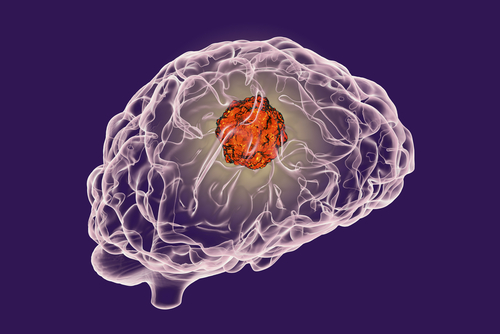Combining radiation therapy with immune checkpoint inhibitors induces an immune response to both irradiated and non-irradiated glioblastoma, a study in mice found, suggesting that a combination of these approaches could improve survival outcomes for those patients.
The findings were presented recently at the 2019 American Association of Neurological Surgeons (AANS) Annual Scientific Meeting, in San Diego, in a study titled “Anti-PD-L1 Immunotherapy Enhances Radiation-induced Abscopal Response in Glioblastoma.”
Previous efforts to establish immunotherapies for glioblastoma have been largely unsuccessful because, in part, these tumors are very heterogeneous (diverse) and only a subset of cells are selectively eliminated.
Researchers believe that a possible approach for the treatment of glioblastoma consists of achieving an abscopal effect, which happens generically when immune cells from a treated tumor are able to travel to remote sites and eliminate cancer cells in untreated tumors.
Chibawanye Ene, MD, PhD, winner of the Ronald L. Bittner Award on Brain Tumor Research, aimed to determine if treating glioblastoma with focused radiation could increase the immune response to non-irradiated tumors. Ene and his team also assessed whether immunotherapy with an anti-PD-L1 antibody could increase this immune response.
Researchers first evaluated the response of 47 glioblastoma patients to stereotactic radiosurgery (SRS) — a highly precise form of radiation therapy that delivers large doses of radiation to specific areas — and found that older patients, especially those over 60 years, had a reduced immune response outside the targeted area. That led to worse outcomes in those patients.
The team also developed a mouse model of bilateral glioblastoma consisting of mice with two tumors, one on each side of the brain. The investigators treated one tumor with a combination of focal radiation anti-PD-L1 immunotherapy and studied the immune response on the untreated tumor.
There are various previously approved anti-PD-L1 immunotherapies for different types of cancer, such as Bavencio (avelumab) and Imfinzi (durvalumab). All enhance the immune response by avoiding an interaction between tumor and immune cells that is used by the tumor cells to inactivate the immune response.
The addition of anti-PD-L1 immunotherapy to radiation increased the immune response against tumor cells in the untreated tumor, increasing the mouse’s lifespan. In particular, researchers found that infiltration of macrophages (immune cells that engulf threats, like cancer cells) into the tumors was associated with the regression of the untreated tumor.
These cells, when treated with anti-PD-L1 immunotherapy in the lab, produced different proteins and showed an increased capacity to engulf cancer cells, at least partially explaining why the immunotherapy improved the responses to radiation.
“Focal radiation combined with anti-PD-L1 therapy induces an immunological response to un-irradiated glioblastoma. We are currently optimizing other treatment combinations that could also be readily assessed in phase I human clinical trials,” the researchers concluded.


